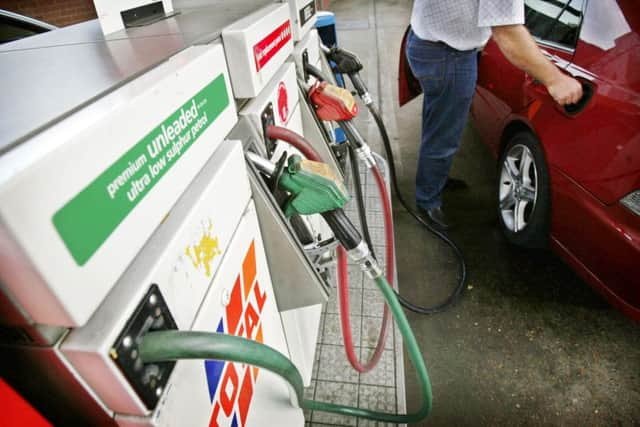Plans to reduce fuel duty described as ‘irresponsible’ by environmentalists


The tax has been frozen by the government for nine consecutive years and stands at 57.95 pence per litre for petrol and diesel.
According to the latest forecast by the Office for Budget Responsibility, fuel duty is expected to raise £28.4 billion in 2019-20 – equivalent to £1,000 for every household in Britain.
Advertisement
Hide AdAdvertisement
Hide AdHowever, the move has been criticised as “irresponsible” following the government’s decision to declare an environment and climate emergency in May.
The cut would form part of an emergency budget by Chancellor Sajid Javid and could pave the way for a general election in October, The Sunday Times said.
The reported plans follow a series of funding pledges by Mr Johnson since he took over the top job, including a boost for left-behind towns and extra resources for crime-fighting, fuelling speculation over a snap vote.
A source told the Mail on Sunday it would send “a clear message that the Prime Minister is fully behind business in the run-up to Brexit”.
However, earlier this month, a right-wing think tank said fuel duty should be increased to tackle air pollution in the UK.
Bright Blue said Britain’s departure from the EU provided an opportunity to raise air pollution standards and suggested removing the existing freeze on fuel duty.
In May, MPs backed a motion in the House of Commons to officially recognise a ‘climate emergency’ after a series of protests by environmental activist group Extinction Rebellion.
A UK citizens’ assembly on the issue is due to take place in the autumn to explore the fastest and fairest ways to end the UK’s carbon emissions.
Advertisement
Hide AdAdvertisement
Hide AdMany local authorities are targeting carbon-neutrality by 2030.
Scottish Greens environment spokesperson Mark Ruskell said: “Given the UK government’s appalling record on the environment, we shouldn’t be surprised that it wants to subsidise more car use.”
“We are in a climate emergency and have seen the hottest June and July on record, we cannot tackle the crisis by failing to cut transport emissions. It’s vital that finances are raised to improve public transport making it more cost effective option than private car use.”